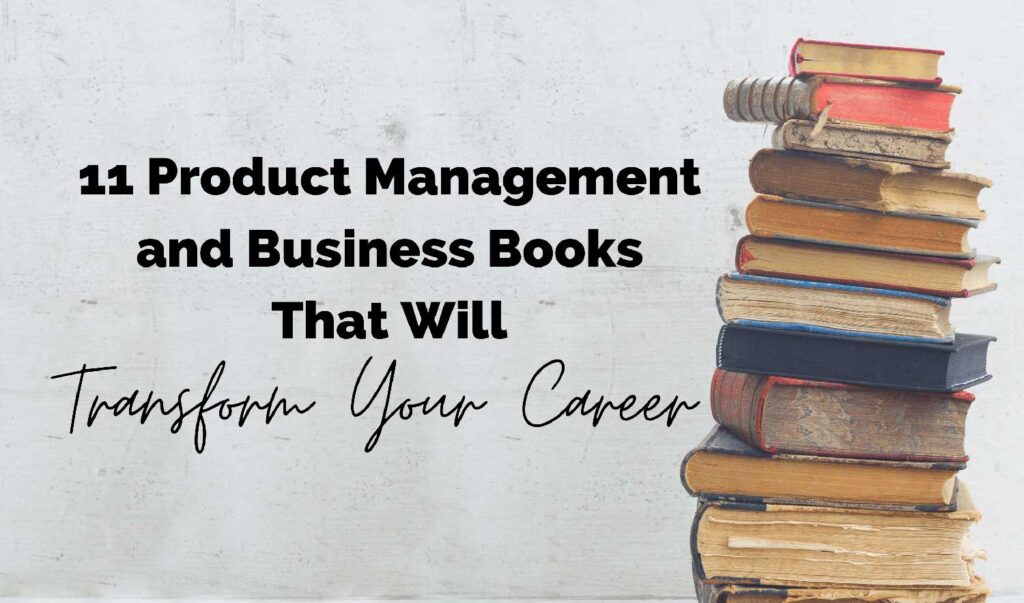These days, many of us are working from home. Many are experiencing reduced working hours and some are not working at all. However, our situation doesn’t define us, it’s how we handle it that does.
This unique time in our lives presents an opportunity for education. We can spend our quarantine hours catching up on episodes of Silicon Valley, or learning and building our knowledge base to be better prepared for the future. We encourage you to choose the later, although a healthy balance of both couldn’t hurt.
Our team melded minds and put together a reading list of top books to help you advance your career in product management and business.
From the Team
- Growth Hacker Marketing: A Primer on the Future of PR, Marketing, and Advertising
Author: Ryan Holiday
Date Published: September 30, 2014
Key Quote:
Growth hackers are a hybrid of marketer and coder, one who looks at the traditional question of “How do I get customers for my product?” and answers with A/B tests, landing pages, viral factor, email deliverability, and Open Graph.
Ryan Holiday
Key Takeaway:
Dubbed by product leader Nir Eyal as “an invaluable tool for ad executives, engineers, and executives alike”, Growth Hacker Marketing makes its readers forget everything they thought they knew about marketing. In just 176 pages (or 2h 17m if you’re an Audible fan), Ryan Holiday introduces us to “growth hacking”. Growth hackers make decisions based on data, they don’t need a lot of exposure to make noise and they spend 100% of their time and effort on producing great products. They don’t waste their time with vanity metrics.
Holiday teaches us 3 basic lessons:
- Startup marketing is different today than it was 20 years ago.
- Target one small but centered client community first.
- Make your product go viral by converting consumers into salesmen.
- The Effective Executive: The Definitive Guide to Getting The Right Things Done
Author: Peter F. Drucker
Date published: January 3, 2006
Key Quotes:
Executives are not paid for doing things they like to do. They are paid for getting the right things done.
Peter F. Drucker
Key Takeaway:
Perhaps even more relevant today than when it was first written, The Effective Executive is an essential book that readers will revisit several times over during their career. Drucker calls executives to “make strength productive”. He demands that we not only leverage our own strengths, but all available strengths; from associates and superiors alike. He asserts that focusing on weakness is wasteful, but taking full advantage of one’s strengths is productive. Another valuable reminder from Peter; say “no” to excess meetings.
- Turn the Ship Around!: A True Story of Turning Followers into Leaders
Author: L. David Marquet
Date Published: May 16, 2013
Key Quote:
It might seem like a little thing, but on board a nuclear submarine, little things like lack of punctuality are indicative of much, much bigger problems.
L. David Marquet
Specifying goals, not methods is a mechanism for competence.
L. David Marquet
Key Takeaway:
Marquet gives us timeless principles for empowering leadership. His book focuses on real world problems. Marquet’s most original idea is his leader-leader (rather than leader-follower) approach. It brutally combats the fact that only 54% of workers in the U.S. declare that they are satisfied with their jobs. He argues that the leader-leader style is the secret to organizational success, where everyone can pitch in their ideas. David encourages empowering employees by increasing their responsibilities, which will in turn, make them more productive. Most notably, Marquet challenges the ingrained hierarchical system, and the top-down leadership approach.
- Ownership Thinking: How to End Entitlement and Create a Culture of Accountability, Purpose, and Profit
Author: Brad Hams
Date Published: August 3, 2011
Key Quote:
For an organization to achieve excellence, it must engage all of its organization members. Not only will these employees have the ability to engage, but most of them will have the desire to do so. Money is, of course, important, but the truth is that people rarely leave a company because of money. More often it is because they do not feel a part of the company and cannot see their contributions to it.
Brad Hams
Key Takeaway:
Hams encourages business leaders to “share the insomnia”– i.e. ensure that you’re not the only one that cares about results. Brad drills down on entitlement thinking opting to convert it into “ownership thinking”.
Upon completion of Ownership Thnking, you will:
- Learn how to educate your staff on the basics of business and accounting (how the firm is making money and how they contribute to or diminish value).
- Define key success metrics for the organization.
- Develop reward programs that marry employee actions with business goals.
- Fanatical Prospecting: The Ultimate Guide to Opening Sales Conversations and Filling the Pipeline by Leveraging Social Selling, Telephone, Email, Text, and Cold Calling
Author: Jeb Blount
Date Published: September 29, 2015
Key Quote:
To be effective you’ve got to know what you want and ask for it.
Jeb Blount
Key Takeaway:
Blount asserts that failure to consistently prospect is the primary cause of an empty pipeline and an empty pipeline is the primary reason for failure in sales. This book is one challenging chapter after another. It’s like dieting – brutally simple, but not easy – you can try every method in the book, but at the end of the day it’s about balancing calories in vs calories burned.
Blount’s key points include:
- Message matters, we make decisions based on emotions and then we justify them with logic. Prospects want to feel like you understand them and their (logical and emotional) issues, before you try to pitch them on features.
- Don’t put all your eggs in one basket, the most successful approach to creating an effective pipeline is the combination of several techniques and platforms.
- Ask hard questions: Have you asked for at least one referral in the last week? Do you send a LinkedIn connection request each time you meet a new client or potential prospect? Why do your customers choose to do business with you?
- The Hard Thing About Hard Things: Building a Business When There Are No Easy Answers
Author: Ben Horowitz, venture capitalist
Date Published: March 4, 2014
Key Quotes:
Note to self: It’s a good idea to ask, “What am I not doing?
Ben Horowitz
Take care of the people, the products, and the profits– in that order.
Ben Horowitz
Key Takeaway:
This book is for business and product people, alike. It is a refreshing read that not only talks about startups and the initial process of developing a business and building products but acknowledges the “what happens after”. It is a one-of-a-kind “business” book that utilizes swear words for effect. Horowitz captures his readers with honesty and real world examples.
Ben Horowitz teaches us 3 major lessons:
- Be honest about your problems. Within an organization, news spreads quickly and bad news spreads twice as fast.
- Take care of your people. Invest in your employees and make sure they have an opportunity to excel.
- Know your role. Hint: your role doesn’t include doing it all. To lead effectively, you must determine strategy and then convince your team to follow.
Just For Product Managers
The following recommendations are widely renowned as the best product management books to ensure success as a PM. From authors like Marty Cagan, Clayton Christensen, Eric Ries, Geoffrey Moore, and Dan Olsen, these product development reads are fantastic and well loved across the board. We challenged ourselves to create a one sentence summary of each book to give you just a taste of what’s to come.
- The Lean Product Playbook: How to Innovate with Minimum Viable Products and Rapid Customer Feedback
Author: Dan Olsen
Date Published: June 2, 2015
One Sentence Summary:
In The Lean Product Playbook, Dan Olsen teaches us how to effectively create products using the Product/Market Fit Pyramid and lean product process, always keeping our target customers and their insufficiently served needs in mind. - The Lean Startup: How Today’s Entrepreneurs Use Continuous Innovation to Create Radically Successful
Author: Eric Ries
Date Published: September 13, 2013
One Sentence Summary:
Written for entrepreneurs and business enthusiasts, The Lean Startup offers a semi-scientific, honest and authentic approach to developing a company leveraging testing, identifying a viable business model and establishing a growth driver. - Crossing the Chasm: Marketing and Selling High-Tech Products to Mainstream Customers
Author: Geoffrey A. Moore
Date Published: Aug 1, 2006
One Sentence Summary:
Increasingly referred to as the “Bible” for bringing cutting-edge products to progressively larger markets, Crossing The Chasm provides a marketing roadmap to tech startups, in order to get their brand the initial exposure it needs to ultimately penetrate the majority of the market and not drown in the gulf between early adopters and idealists. - The Innovator’s Dilemma: When New Technologies Cause Great Firms to Fail (Management of Innovation and Change)
Author: Clayton M. Christensen
Date Published: January 5, 2016
One Sentence Summary:
Invaluable for managers, leaders, and entrepreneurs alike, The Innovator’s Dilemma explains the impact of disruption, why industry leaders are often set up to fail as technologies and industries change and what they can do to protect their long-term market leadership. - Inspired: How to Create Tech Products Customers Love
Author: Marty Cagan
Date Published: 2008
One Sentence Summary:
In Inspired, prominent PM and leader in tech, Marty Cagan, offers readers a comprehensive lesson on how to organize and employ a dynamic and effective software organization, and how to discover and produce technology products consumers love.
Bonus: Many Product Managers also find value in his regularly posted insights on the SVPG blog.
Share the love
Do you have a favorite product management, or general business book that has shaped the way you work with your team? Tell us about it! We also invite you to share our research and recommendations with your friends on social media. You can find us everywhere: Twitter | Instagram | Facebook | LinkedIn
–––
Keep reading:
Aiming To Build A Great Product? Stop Crafting a Useless Product Vision

